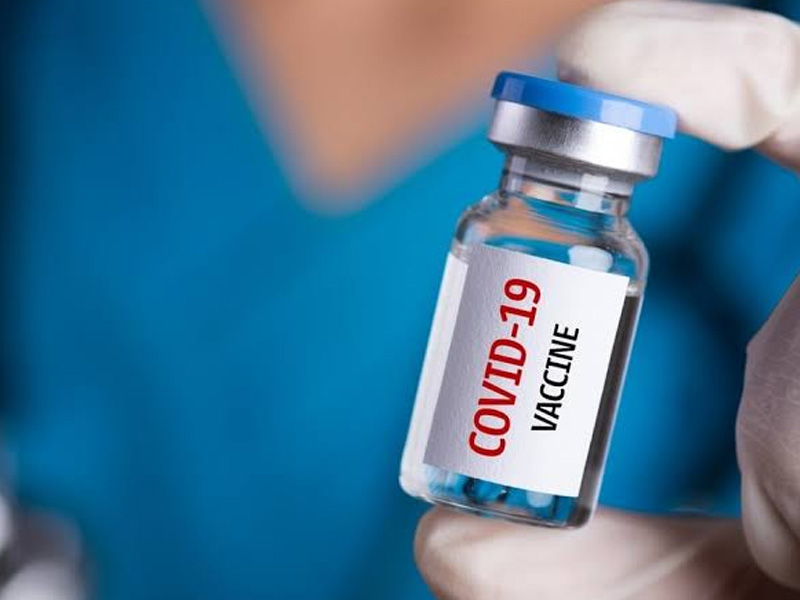
The outbreak of COVID-19 pandemic has left the world devastated as it has spread across the globe. COVID-19 has claimed about 3 million lives around the world making it one of the deadliest pandemics in history. It has been over a year since the outbreak of COVID-19 and countries are still struggling to recover from it as the virus has impacted almost every aspect of life. To break the chain and stop the spread of the virus, most governments were forced to impose lockdowns and strict restrictions on day to day activities.
Table of Content:-
Fortunately, at the start of 2021, numerous vaccines across the world received emergency approval, including Covishield & Covaxin in India. Approximately 1.23 billion vaccine doses have been administered globally as of May 2021. The figures indicate a possible return to 'normalcy.' However, global COVID-19 vaccination faces a number of challenges that could jeopardize its success. As the second wave COVID-19 set foot in India, it is extremely important to be vaccinated to control the spread of the virus. Onlymyhealth editorial team spoke to Dr. L. Sanjay, General Physician, Apollo Spectra Hospitals, Kondapur, Hyderabad, about the benefits of vaccination.
Benefits of vaccination

Many people, are skeptical of the vaccine while the healthcare community strongly recommends every individual to be vaccinated. Here are a few immediate benefits of vaccination:
1. Reduces the risk of infection
The body begins to produce antibodies to the virus as soon as it receives the first dose of the COVID-19 vaccine. The immune system will be able to fight the virus with the help of these antibodies, reducing one’s chances of becoming infected. It is important to note that even after being immunized, people can contract the virus. However, once the majority of the population is immunized, the chances of becoming infected are further reduced due to herd immunity. People who get vaccinated not only reduce their chances of becoming infected but also contribute to community protection and reduce the possibility of virus transmission.
Also read: COVID-19 Vaccination Drive India: Read Health Ministry's Guidelines
2. Protects from severe illness
COVID-19 vaccine has been shown in studies to be effective in preventing serious COVID-19 illnesses. This means that if a person is vaccinated and becomes infected with the virus, their chances of becoming severely ill are reduced. Vaccinated people who become infected have a mild to moderate case compared to unvaccinated people. Once people have been fully immunized, the risk of death or hospitalization from coronavirus is almost eliminated.
3. It will help to ditch the mask eventually

The COVID-19 vaccination is the only hope of returning to normalcy. Preventative health measures such as hand washing, physical separation, and mask use have slowed the virus' spread. People must continue to take these precautions until enough people have been vaccinated. Physical distancing and wearing masks will no longer be necessary once the population has reached herd immunity and the spread becomes unlikely.
4. It will help to reconnect with the loved ones
People will be able to visit other vaccinated people once they have been vaccinated and have waited the required time for the body to build immunity. Also, if someone needs to be around someone who has an infection but is not experiencing any symptoms, they will not be required to quarantine themselves.
Also read: Doctor Demystifies COVID Vaccination Queries On 1 Year Of COVID-19 In India
After about a year of living in uncertainty, the world now has a vaccine with enough benefits that everyone should consider getting the shot. People can use the COVID-19 vaccine to protect not only themselves but also their families and community. Also, the vaccines that have been approved by experts are both safe and effective. Secondly, vaccines are critical if the population is to overcome this pandemic, both socially and economically. Because of the pandemic, every aspect of life has suffered, including the children's education, jobs, businesses, and healthcare services. If people want to return to normalcy, the population needs to get vaccinated.
Read more articles on Miscellaneous
Also watch this video
How we keep this article up to date:
We work with experts and keep a close eye on the latest in health and wellness. Whenever there is a new research or helpful information, we update our articles with accurate and useful advice.
Current Version
